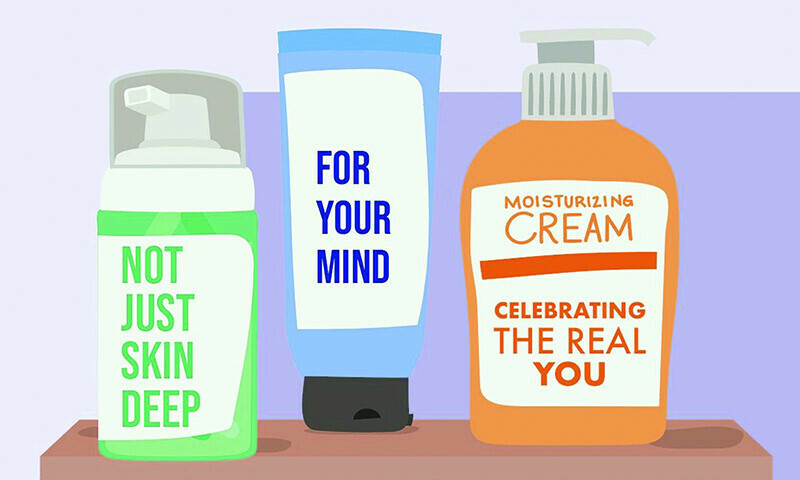The Beauty of Self-Discovery
 The beauty business has been in existence since ‘forever’ and most notably in Ancient Egyptian culture in one form or another. Today, of course, the personal care category makes up a large part of the consumer packaged goods industry, where brands are often sold with the claim that they will improve or protect skin health and by implication, make it look better, smoother, cleaner and so on. Although this particular approach has been working for decades, consumers today are much more aware of the ingredients contained in such products and their production process. They know what to look for and whether these claims can be validated or not, giving rise to a new generation of consumers who ask more questions. As a result, today personal care brands could be at risk of becoming irrelevant unless they change their narrative and substantiate their claims.
The beauty business has been in existence since ‘forever’ and most notably in Ancient Egyptian culture in one form or another. Today, of course, the personal care category makes up a large part of the consumer packaged goods industry, where brands are often sold with the claim that they will improve or protect skin health and by implication, make it look better, smoother, cleaner and so on. Although this particular approach has been working for decades, consumers today are much more aware of the ingredients contained in such products and their production process. They know what to look for and whether these claims can be validated or not, giving rise to a new generation of consumers who ask more questions. As a result, today personal care brands could be at risk of becoming irrelevant unless they change their narrative and substantiate their claims.
1. Connecting through self-love
Personal care brands have realised that to maintain a positive perception they need to echo the voice of their consumers – and this means no longer leveraging the perceived physical insecurities of their consumers and moving towards a more self-embracing narrative. Dove, of course, was one of the first brands to do this with their ‘Real Beauty’ campaign that featured diversity and inclusivity and celebrated beauty in all its forms. Dove’s recent ‘Reverse Selfie’ campaign has furthered a narrative they began 15 years ago. The campaign addresses young women and the prevailing obsession to use filters in order to enhance their appearance. The campaign asks them to love themselves and work on their self-esteem.
Many brands have followed in Dove’s footsteps, with varying degrees of success. Unilever renamed Glow & Lovely (formerly Fair & Lovely) but then faced a backlash amidst protests about racial discrimination in the US, while in India, Hindustan Unilever was criticised for continuing to build unrealistic beauty standards and stereotyping skin tones. The brand has now managed to move into a politically-correct zone although its visualisation is still not as inclusive as some consumers may expect. Then there is Rihanna who when launching Fenty Beauty was careful to represent people from diverse backgrounds and offer inclusive products (40 shades of foundation) for all skin tones. MAC Cosmetics have developed a new theme based on: ‘All Ages, All Races, All Genders’ and L’Oréal have launched their ‘Your Skin, Your Story’ campaign. It is interesting to note that all these brands have moved from functional, results-based messaging to an emotion-based one in order to secure a place in their consumer’s hearts.
2. Changing the benefit set

3. Celebrating the ordinary
Celebrating the everyday hero is an important aspect of this evolving narrative. Personal care brands are increasingly shifting their focus from unattainable beauty ideals to the celebration of authenticity and the power of individual self-expression. By acknowledging the beauty of everyday life, these brands empower ordinary people to shine in their own unique ways. They celebrate real-life stories, encouraging people to embrace the quirks, imperfections and distinctive qualities that make each person extraordinary.
By connecting with consumers at a deeper, emotional level and challenging conventional beauty norms, brands are able to secure a special place in the hearts of their audience and embed themselves in each person’s unique journey of self-discovery. These brands recognise that it’s not only about product benefits but about fostering genuine connections and championing personal narratives; connections that keep these brands at the forefront of their consumer’s mind during their path to purchase journey.
It’s no longer just skin-deep; it’s about touching hearts and minds.
Muhammad Ali Khan is AVP/Manager Communications at JS Bank. He has previously served as Associate Director Strategy & Creative at Synergy Dentsu and Spectrum VMLY&R.




Comments (3) Closed